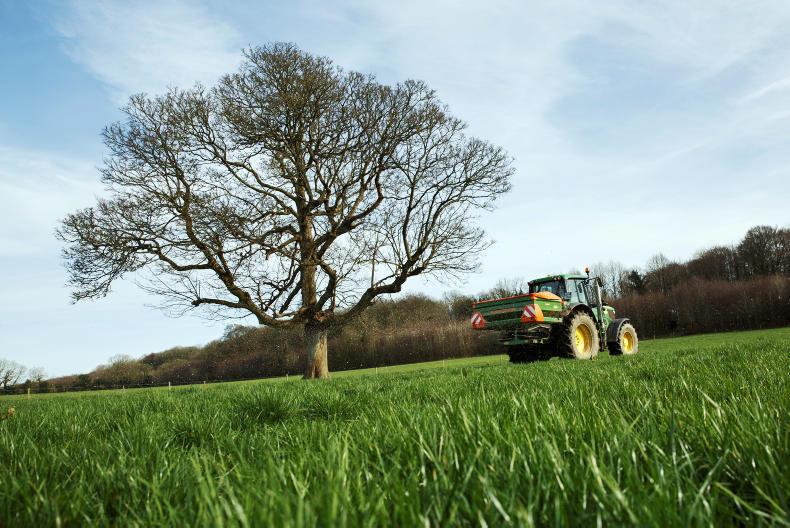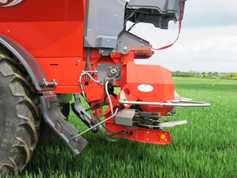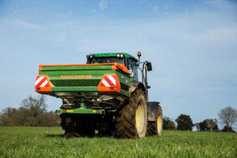Fertiliser prices have dropped by €10/t since the beginning of the month, with the price expected to continue to decline in the weeks ahead. The IFA recently suggested farmers could expect to see a €30/t reduction following a drop in prices in the wholesale market, but this has not materialised as yet.
However, it may arrive in the weeks ahead, with merchants reporting a sharp fall in demand and purchasing activity. Also, if summer follows the trend of last summer, prices will continue to drop.
A survey conducted by the Irish Farmers Journal this week has revealed a national average price of €250/t delivered for bags of CAN.
The keenest quote for CAN was in the east of the country, where farmers could expect prices of €235/t for 50kg bags delivered and €225/t for bulk. Elsewhere, prices were highest in the south where the average price quoted was €260/t for bags delivered and €255/t for bulk.
Both the west and the north fell somewhere in the middle of these two price ranges, at €255/t and €245/t respectively for bags delivered.
Across the board, bulk was cheaper than bags and collected was cheaper than delivered. However, some merchants do not charge extra for delivery, so it is important to check with your local supplier.
With many farmers having first-cut silage completed or aiming to cut later this week, the price of cut sward and 18:6:12 are in the region of €335, with demand expected to replenish soil fertility levels.
The north of the country had the lowest quotes for 18s of €320, while the east wasn’t far behind at €330 for both 18s and cut sward.
Meanwhile, in the rest of the country, cut sward was quoted as being between €340 and €345.
Merchants in the east of the country stated that a large majority of their sales have already gone out while those in the south and west have seen a recovery in demand as farmers prepare for second-cut applications.
ANC stocking rate
For farmers who do not currently have any stock on hand, there is only one week left to purchase animals to be in a position to satisfy the seven-month retention period for the Areas of Natural Constraint (ANC).
Under the scheme, applicants must possess an average stocking rate of at least 0.15LU/ha over the full calendar year and a minimum stocking rate of at least 0.15LU/ha over the seven-month retention period.
Female or male cattle over two years of age equate to one livestock unit (LU), while those under two years are 0.6LU. Female or male sheep are 0.15LU, while eligible horses and donkeys (require equine passports) are classified as 1LU.






 This is a subscriber-only article
This is a subscriber-only article










SHARING OPTIONS: